
Three films, 550 educational institutions in Ukraine and two educational institutions for Ukrainian children abroad, five public screenings for schoolchildren with the participation of the filmmakers and film protagonists, 46 lessons on human rights involving representatives of the National Police of Ukraine, 115 school exhibitions on volunteering, one all-Ukrainian online discussion, one methodological guide for teachers, five online conferences for educators in the regions, 15 promotional trips of the DOCU/CLUB Network team to educational institutions in the regions, one offline meeting for educators in Lviv, 20 media publications, one promotional video, 35 new film clubs at educational institutions, and hundreds of enthusiastic reviews from the participants – these are the results of the School DOCU/WEEK 2024 in numbers and figures.
This year's School DOCU/WEEK project was the first one after the start of the full-scale invasion. The security situation in the country made it more difficult for organizers than previous projects, increasing challenges for both educators and the Network team that planned and prepared the School DOCU/WEEK. However, its results convinced us that our joint efforts were not in vain: the project earned a high profile and aroused great interest in the educational environment.
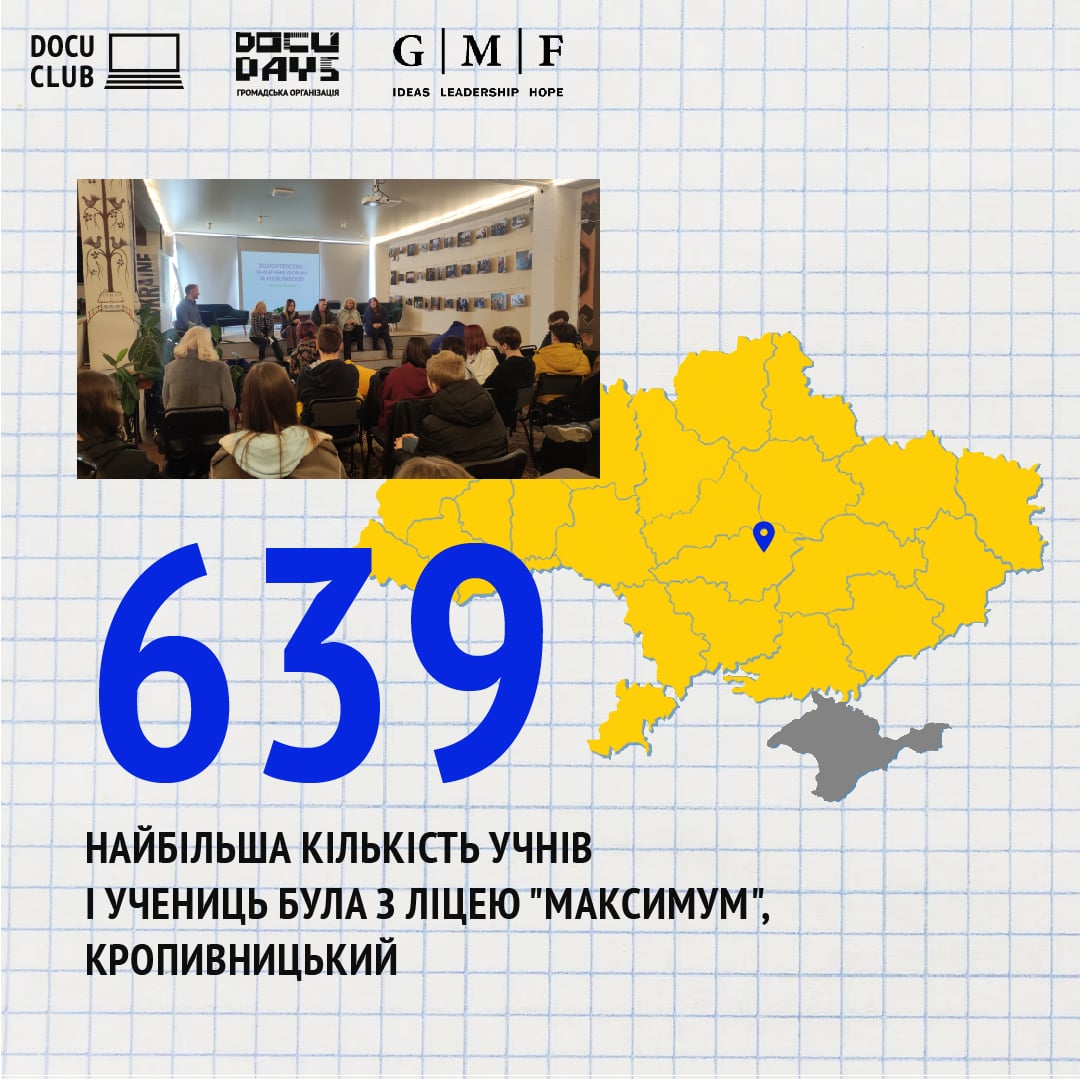
The School DOCU/WEEK lasted for five months, from September 2024 to January 2025. A total of 549 educators and educational institutions from all over Ukraine participated in it. The vast majority of them had no previous experience of using human rights documentaries in the educational process.
The topic of this year's DOCU/WEEK was human rights and volunteering. The Network team offered teachers to watch and discuss three films with their classes: Euromaidan SOS and Language, directed by Serhiy Lysenko, and Tales of a Toy Horse, directed by Ulyana Osovska and Denys Strashnyi. During the project, these films have been watched and discussed in Ukrainian schools 1657 times online and 336 times offline.
In addition to the DOCU/WEEK screenings, educators also conducted lessons about human rights and volunteering in their schools and organized meetings with local volunteers for students. As part of the project, many educational institutions held exhibitions of students' work on International Volunteer Day. On International Human Rights Day, many schools invited representatives of the National Police of Ukraine to conduct a joint lesson.
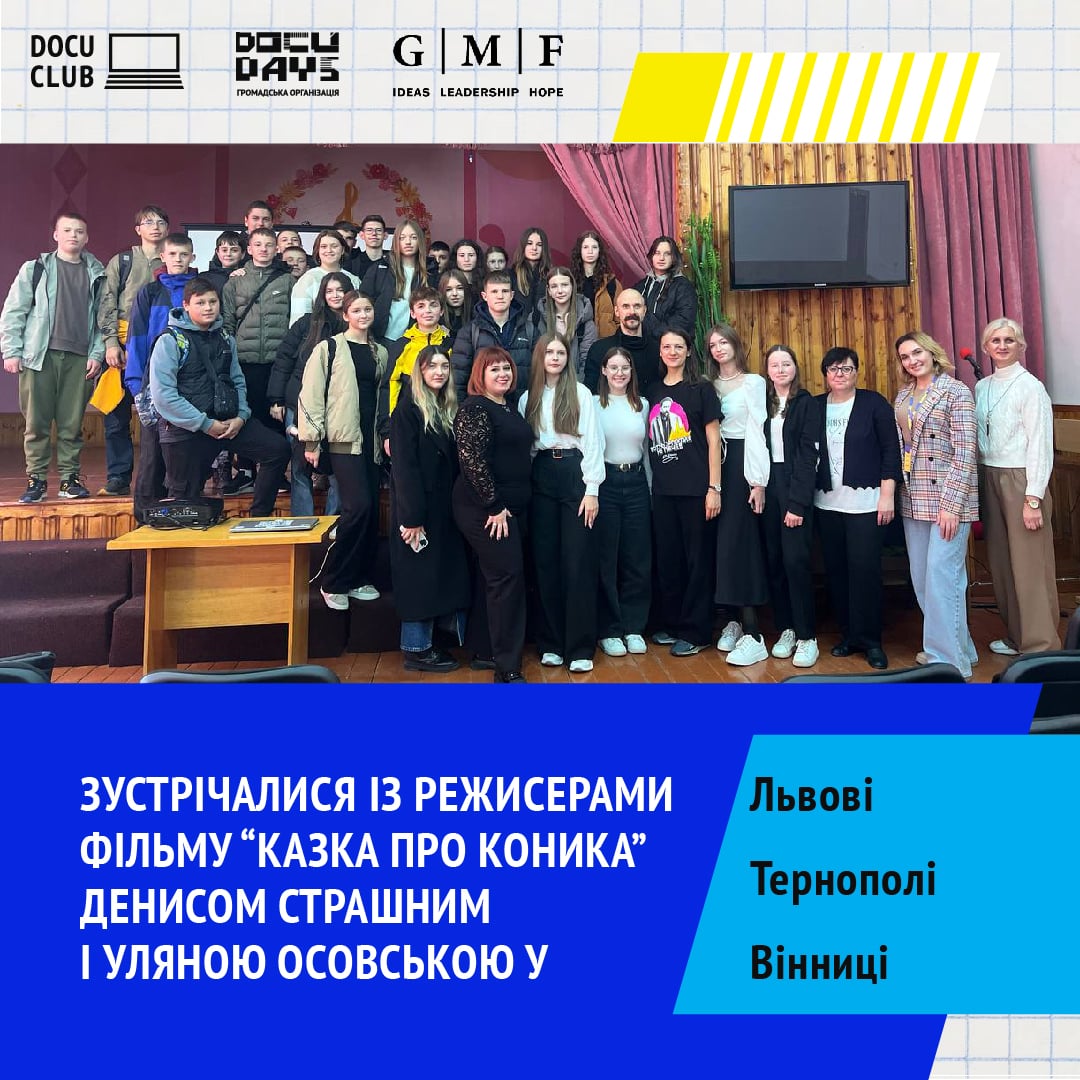
A special highlight of the project were meetings of film directors and protagonists with school children that took place in Kyiv, Vinnytsia, Zhytomyr, Ternopil, and Lviv. For the first time, children from these cities had the opportunity to watch documentaries on the big screen in cinemas or cultural centers and talk directly to the filmmakers.
“It was a unique experience for our students. For me, it was a great opportunity to show the students how history and contemporary events can be described through documentary films. The students saw real events from a new perspective and discovered many new topics, such as human rights issues, the value of language, and the importance of volunteering. Thank you for this wonderful opportunity!” said Kateryna Kravs, teacher and participant of the meeting in Lviv.
“I was impressed by the respect for the language shown by those who learned it: they tried to pronounce the words correctly and read with feeling. After the end of the war, we will also need such courses,” Oleksandr, a student of a Kyiv lyceum, shared his impressions after the meeting with the protagonist of the film Language.
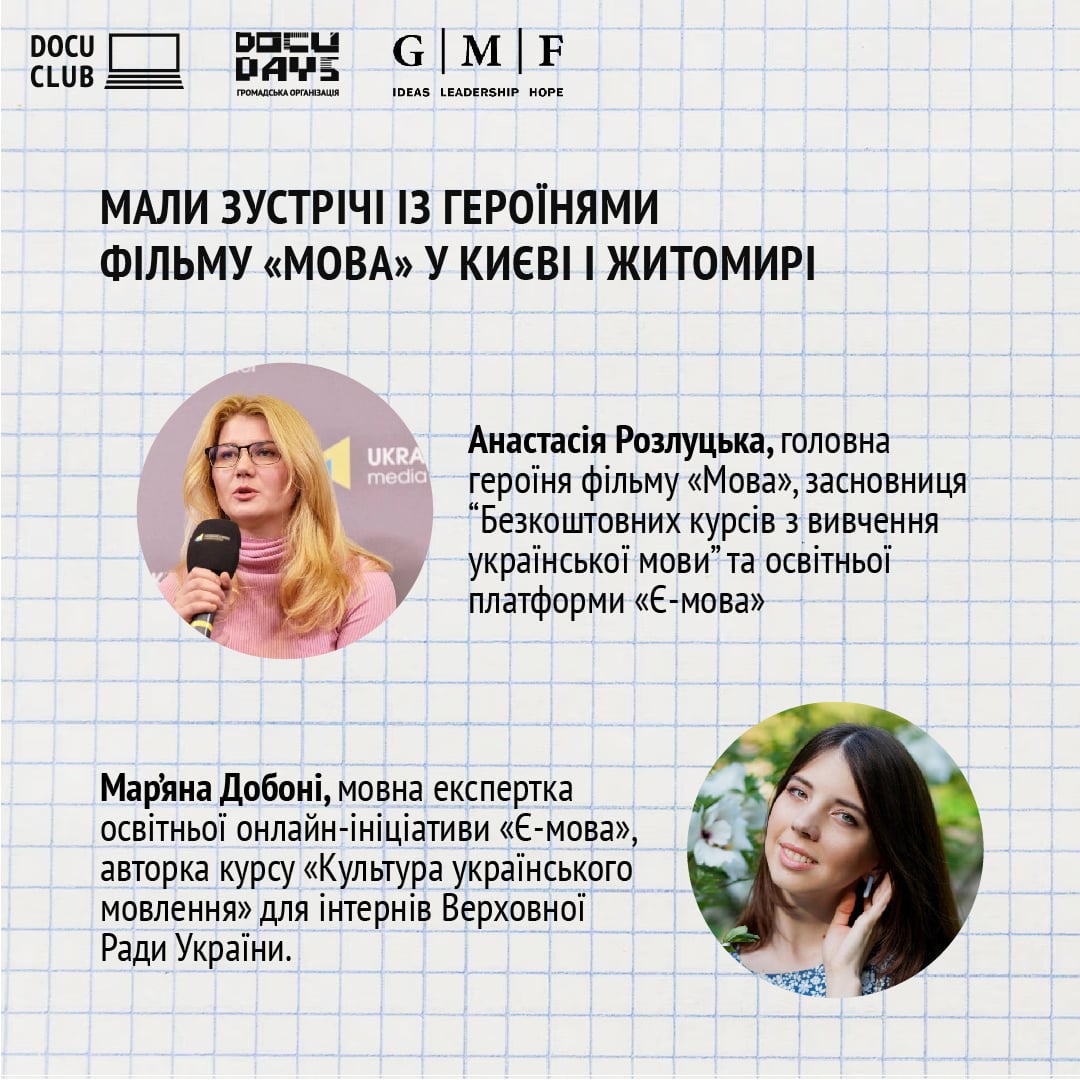
To support and develop the educators’ interest in a new format of work that involves documentary films, the Network team presented a guide for teachers entitled “Human Rights and Documentary Films: Possibilities for Integration into the Educational Process.” This guide is the result of several years of work by Oksana Gil, moderator of the Docudays UA film club from Ternopil, co-coordinator of the School DOCU/WEEK, head of the democratic Alterra School, and teacher of Ukrainian language and literature. The guide combines recommendations for use of documentary films in elective courses and extracurricular activities and will help educators choose films from the DOCU/CLUB Network's collection to share knowledge about human rights with the younger generation of Ukrainians.
In order to discuss the prospects of introducing documentary films into the educational process and share the School DOCU/WEEK's achievements and personal experiences, the Network's team in partnership with the Center for Professional Development of Educators (CPDE) brought together 24 educators for an offline training in Lviv at the end of January. Nataliya Dobryanska, coordinator of the School DOCU/WEEK, consultant at the CPDE, and history teacher, focused on bringing together innovative teachers who are ready to implement changes in the educational process and are interested in the active development of students and the formation of their active citizenship.
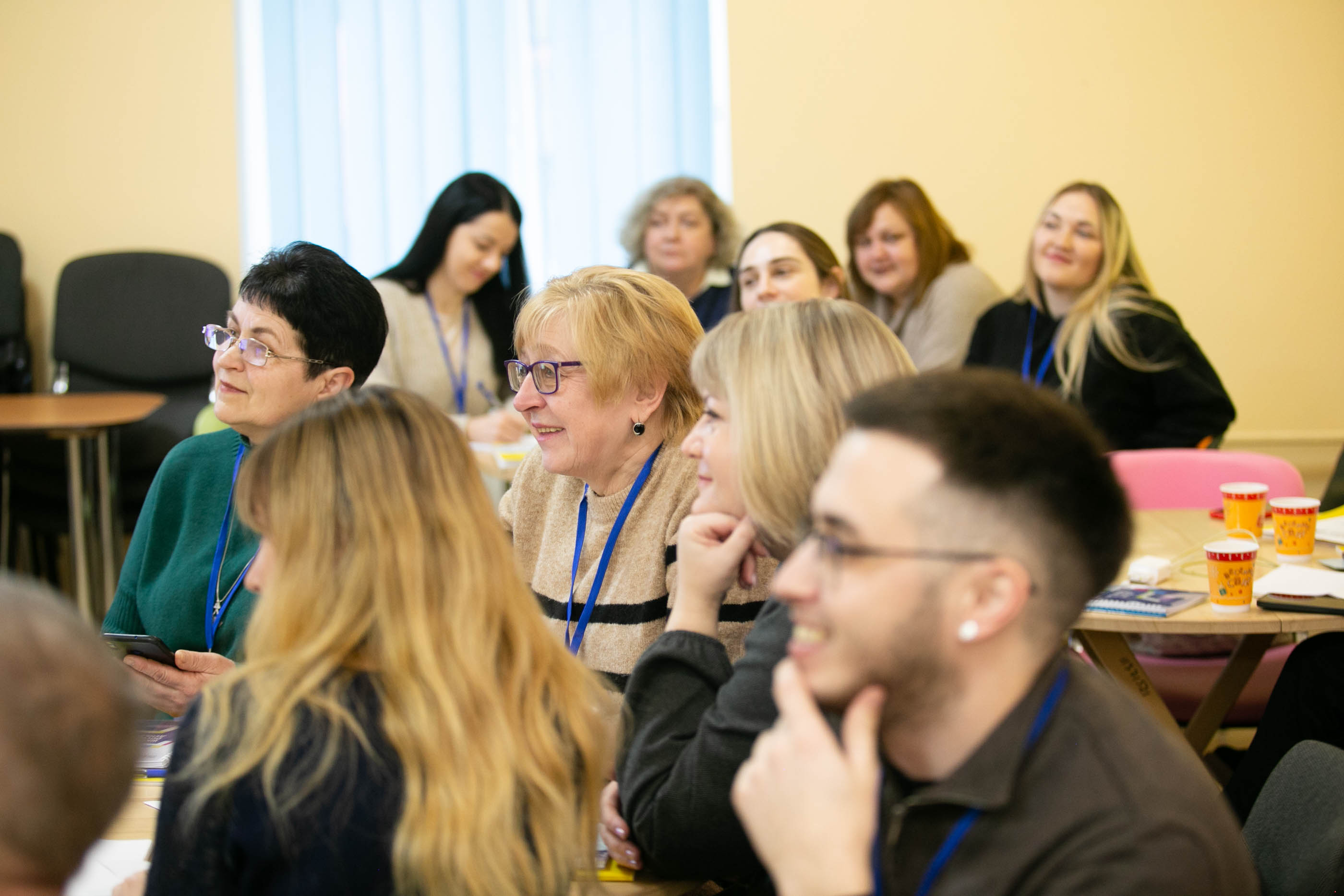
“We came together to share the most interesting results of the project. The teachers told us what was particularly interesting for them during DOCU/WEEK, what touched their students the most, and what topics were raised during the film discussions. Teachers from Lviv, Kyiv, and Ternopil were present, and representatives of the Educational Security Service of the National Police of Ukraine joined us as well. The training brought together both educators who participated in this year's School DOCU/WEEK and those who did not have this chance yet but are already interested in the project. In the course of our work, enthusiasm of some of the participants sparked even more interest in the opportunities offered by film clubs,” said Nataliya Dobryanska, coordinator of the School DOCU/WEEK. “It was very important to share our practical experience with the educators. Together we watched two documentaries: Giovanni and the Water Ballet by Astrid Bussink and The Shepherd by Matthias Julot and Lucien Roux. After that, we discussed methods of working with documentary films in the classroom, told how to organize screenings, and gave advice on how to engage experts. In general, during the training we managed to sow the seeds of interest in film clubs among teachers in a very warm atmosphere.”
The Network team plans to further disseminate the experience gained during the training to the entire educational community.
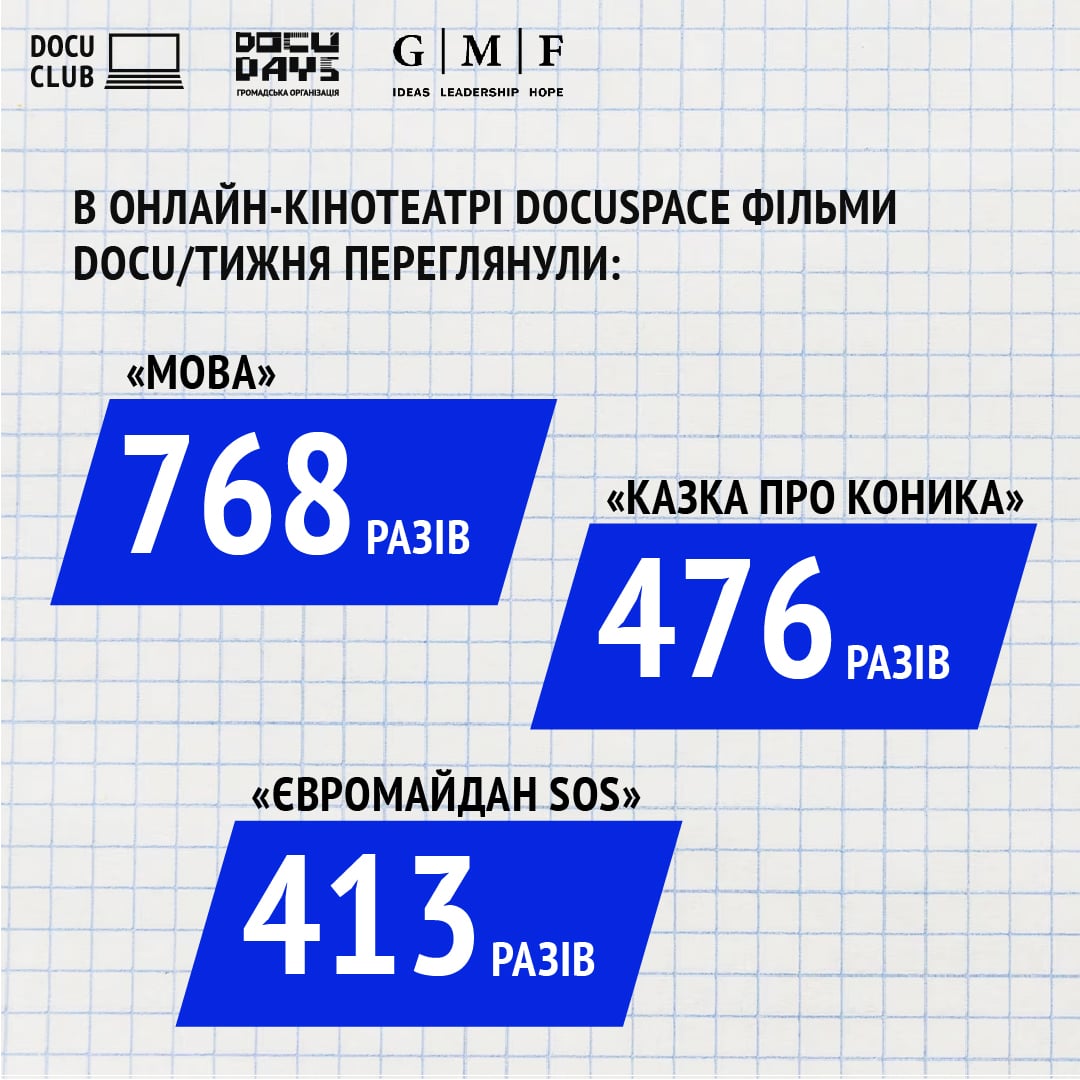
A pleasant surprise for the participants of the training was the presentation of a video about the School DOCU/WEEK created by Kateryna Hornostai, famous Ukrainian director and the Shevchenko Prize winner. The video was being filmed in Kyiv schools during the project. The students’ and teachers’ impressions after watching the documentaries, convince that the School DOCU/WEEK will continue in the coming years, and the Network's team will dedicate its efforts to advocate for the introduction of documentary films into the educational process, as well as into the extracurricular and optional work of educational institutions throughout Ukraine.
Summarizing the results of the School DOCU/WEEK 2024, the DOCU/CLUB Network team is collecting feedback from the project participants.
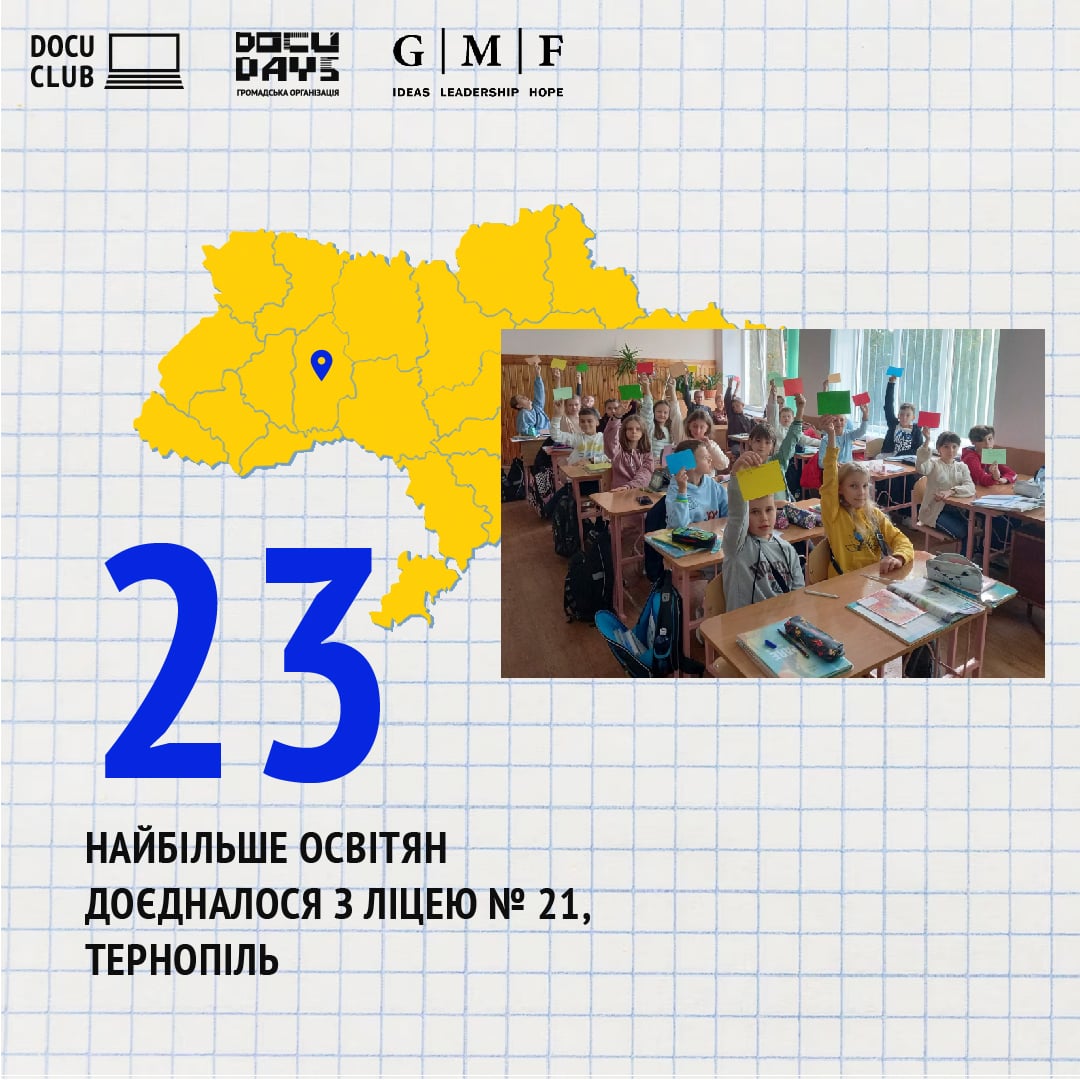
Teachers share with us the impact of documentaries on their students. “Students have become more interested in volunteering, discussing possible school projects aimed at helping the community, preserving the environment, and supporting charitable initiatives. This is an invaluable result for us. DOCU/WEEK has really influenced the formation of their civic consciousness,” wrote Lidiya Shlihtenko, teacher from Vinnytsia.
Teacher Lyudmyla Hryhorchuk from Lokhvytsia in Poltava region noted: “After the DOCU/WEEK, the students really grew concerned with human rights and social justice issues. We are considering turning film screenings and their discussions into our school’s tradition.”
The project organizers have also received feedback from parents, which testifies to the important effects of the DOCU/WEEK on children.

“Our daughter came home after DOCU/WEEK with new thoughts and questions that pleasantly surprised us. She developed an interest in topics she had never even considered before, and this gives us hope that she will grow up to be conscious and caring towards others. This is a great way to raise and educate at the same time,” wrote the parents of a seventh-grader from Mykolaiv.
“My daughter came home inspired and shared her impressions of the screenings. She became more attentive to the news and started asking questions about social issues. I can see that this project has really helped her develop sensitivity to important issues,” said the mother of an eleventh-grader from the village of Sudylkiv in Khmelnytskyi region.
Of course, feedback from students themselves is the most valuable for the Network's team; after all, they are the audience for which the School DOCU/WEEK was conceived and organized all over Ukraine, except for the temporarily occupied territories.
“For us, it was a chance to look at things from a new angle. It was especially interesting to discuss what we saw with our classmates and teachers. We had the opportunity to express our own opinions and listen to others, and it really united us as a team,” said Kateryna, a student of Lyceum #6 in Vinnytsia.
“I was impressed by the stories of people who saved others, defended human rights, or participated in volunteer initiatives during Euromaidan. I am an IDP from Myrnohrad, so the topic of volunteering and war resonates with me in a special way. This project reminds us how it all started,” wrote Anna, a student at the humanities lyceum in Oleksandria, Kirovohrad region.
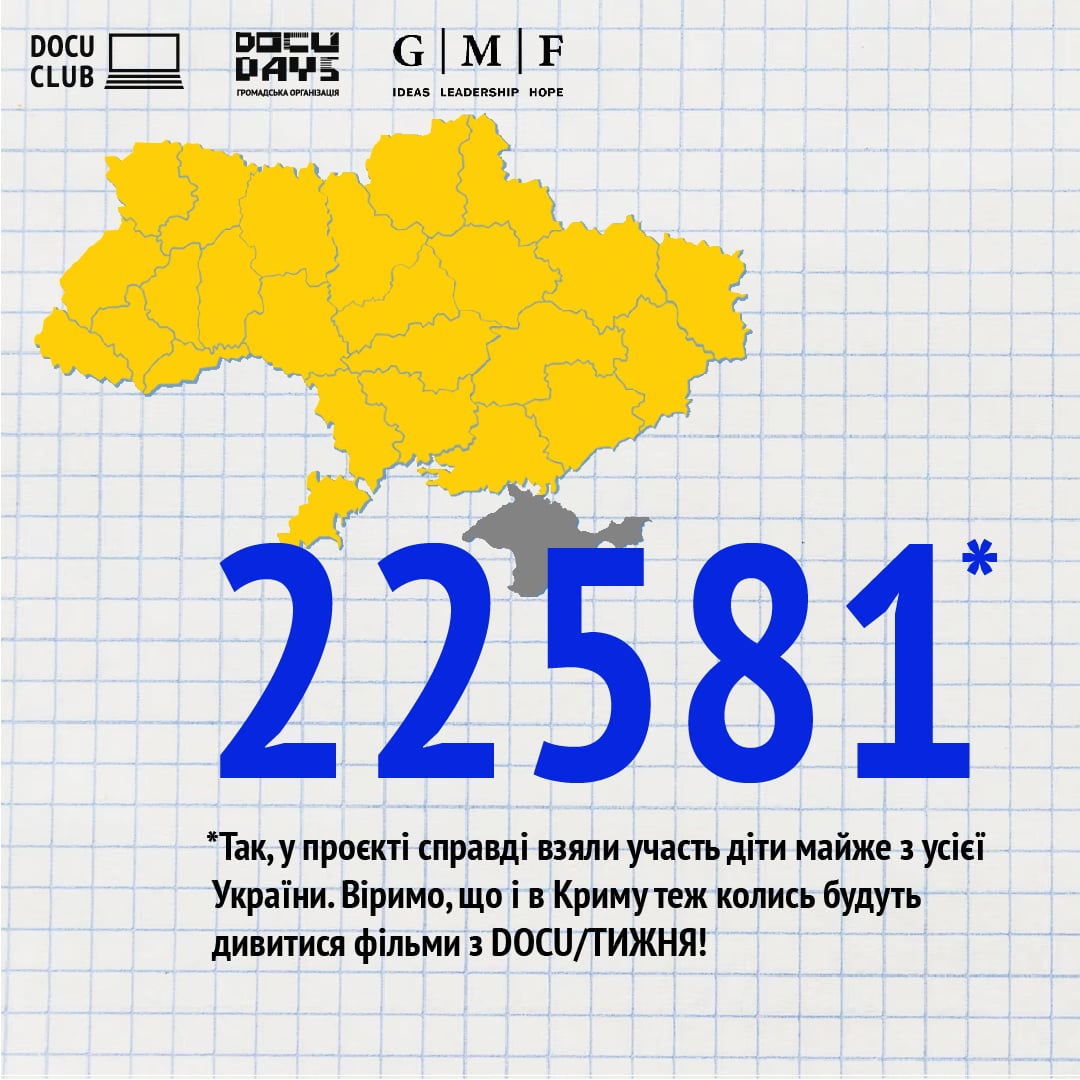
“I want to share this information with my friends, because many of them do not even realize how easy it is to do good deeds. I would also like younger students at our school to learn about the importance of volunteering and look for opportunities to help others. It can make our world a better place,” added a student of the Kharkiv private lyceum “OCHAG.”
The students, parents, and teachers who joined the School DOCU/WEEK have experienced firsthand that human rights documentaries are a useful and effective tool for influencing, educating, and communicating about things that are important for our future. The value of the project for youths is confirmed by active openings of new film clubs at educational institutions across the country.
This publication was prepared with the support of the German Marshall Fund of the United States of America. Its contents are the sole responsibility of the NGO Docudays and do not necessarily reflect the views of the German Marshall Fund of the United States of America.
All news


